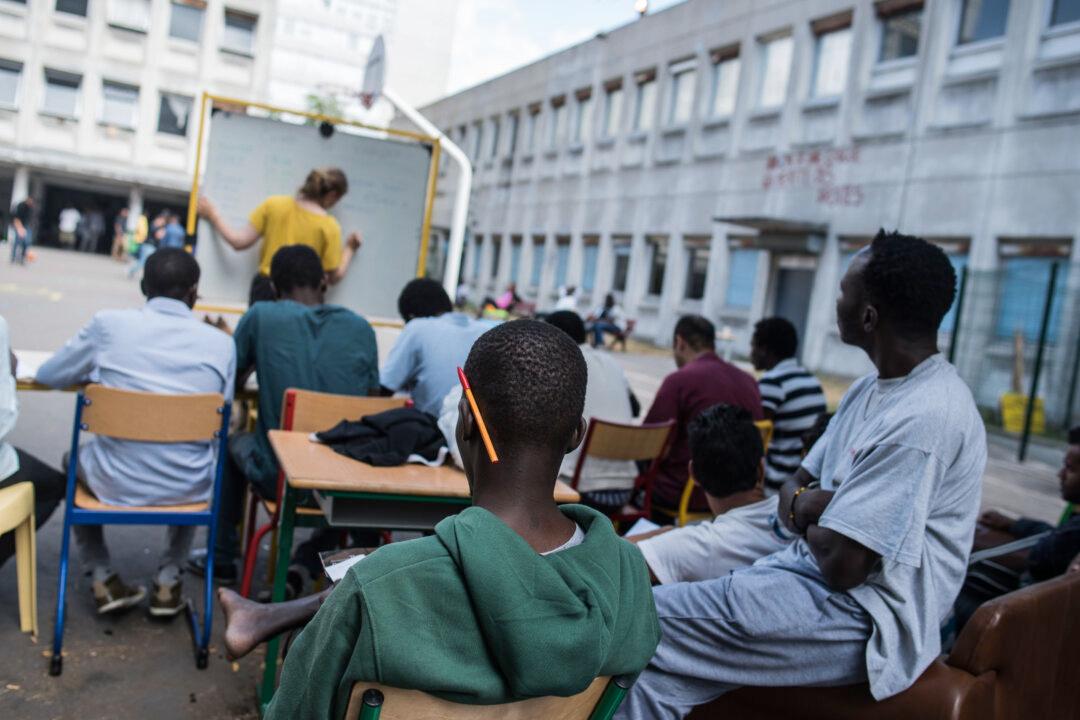PARIS— Before the Taliban forced him to flee Afghanistan, Younis exported flowers to the United Arab Emirates and China.
The 30-year-old crossed Iran, Turkey and much of Europe before arriving in Paris a month ago, a brutal journey that left him with a discolored lesion on his ankle and a swollen leg. After weeks living on the banks of the Seine, Younis — who gave only his first name because his asylum application is still being processed — now sleeps in a former Paris high school that has been empty for four years, one of about 200 migrants living there.
Paris is turning a blind eye to humanitarian groups converting abandoned public buildings like the school into migrant centers, recognizing that the 1,000 official emergency housing spots Paris has created since June are not enough to shelter all migrants left without a roof, Paris’ deputy mayor, Bruno Julliard, told French radio.
The school’s classrooms are lined with sleeping bags atop makeshift cardboard mattresses. Migrants drink instant coffee and eat goulash concocted from donated ingredients. It’s bare-bones, but migrants, activists and many city officials agree it’s better than being on the streets.
The asphalt courtyard echoes with myriad languages as migrants kick soccer balls, play cards, or paint murals on the school’s peeling walls. Younis studies, writing French in meticulous cursive next to translations in his native Dari. The alphabet is different and the sounds are foreign, but he said the real challenge is that “I don’t have a job or a place to stay, I can’t read, I can’t focus.”
Learning French is his first effort toward integration. Younis emphasizes that he is here out of necessity, not because he wants handouts. “I’m not poor,” he said. “I like my country. I lived with my family. If I didn’t have to leave, I would live in Afghanistan.”
France has approximately 25,000 beds designated for asylum seekers, a number far short of the needs of the nearly 70,000 who applied for asylum in the country last year, part of what Julliard called the “unprecedented migrant crisis” facing Europe.
He said allowing migrants to stay in empty buildings is a “pragmatic” way to lodge people France cannot send back home, because deporting them to conflict zones would violate international human rights conventions.
French Interior Minister Bernard Cazeneuve announced in June that France would create 11,000 new housing centers for asylum seekers by next year. But Paris, in partnership with the national government, “needs to do more,” Julliard said. That’s why the city is allowing migrants to stay in city property like the former school, at least for now.
A former hotel in southern Paris also took in approximately 200 migrants last week. A variety of aid groups work together to manage these stopgap centers.
Camille Arrignon, 23, teaches the French classes Younis attends. She said migrants need more than a room; shelters should include French instruction, legal help and health care access. “I want to defend them not because of politics,” she said, “but because they are humans. As humans, they have the right to a place to stay.”





